Association of Catholic Artists and Entertainers of Nigeria
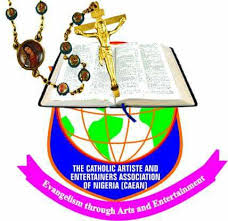
FILM PRODUCTION workshop report
Introduction
The CAEAN Film Workshop, held on October 9-10, 2020 at St. Joseph Chaplaincy CAS, Abakaliki, was filled with incredible lectures and tutorials on filmmaking and film acting. Initiated by CAEAN National President Dr. Charles Okwuowulu, Senior Lecturer in Film Studies at Alex Ekwueme Federal University, Ebonyi State and Filmmaker, expressed the need to (re) train CAEAN members so that they can work in a effective in the technologically advanced age. Before the workshop began, Dr. Charles expressed his gratitude to the Rev. Fr. Ifeanyi Ogodo, diocesan director of social communication, and Fr. Longinus Emeka, the chaplain of the San José CAS chaplaincy, for providing the venue for the workshop. He presented the main objective of CAEAN, which according to him has the responsibility to preach the gospel through entertainment. Consequently, CAEAN, an acronym for the Nigerian Association of Catholic Artists and Entertainers, was formed in 2000 and its activities are overseen by the Nigerian Conference of Catholic Bishops. Therefore, CAEAN is a platform for all Catholic artists, from filmmakers, theater producers, music and dance artists, to use their arts for the propagation of the teachings of the Church. Dr. Charles explained that as the national president of CAEAN, he hopes to bring the workshop to various (Arch) dioceses in Nigeria to stimulate interest in the association.
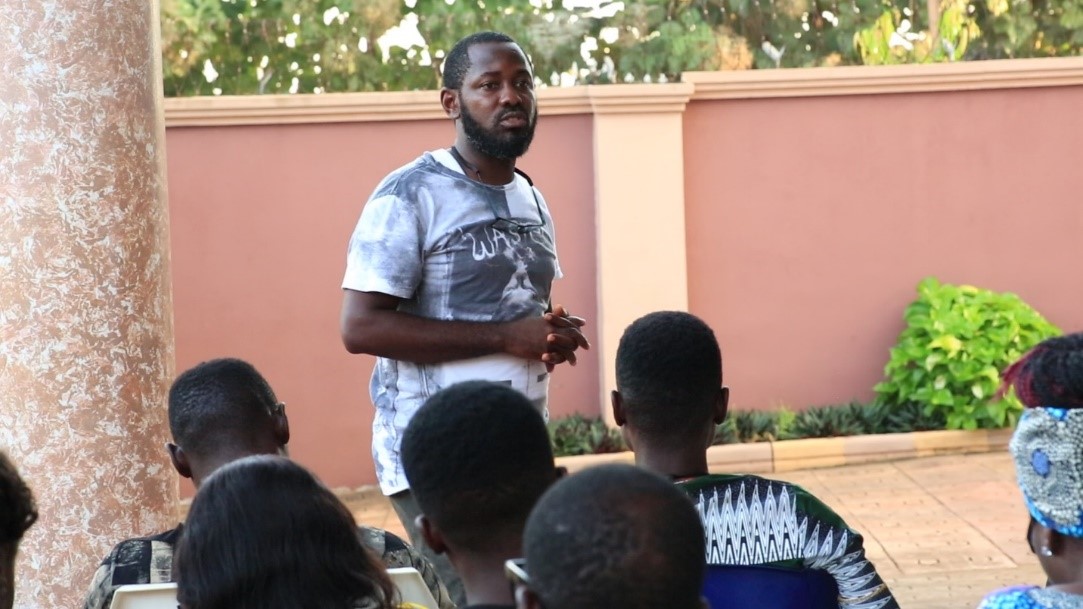
Dr. Charles Okwuowulu giving an introductory speech
He hinted that the workshop is aimed at preparing young actors and actresses who will use their talents to spread the gospel and become soldiers of Catholic doctrines. The workshop focused on the principles of filmmaking and screen acting, as well as a concise history and the economics of production in Nollywood.
Day 1:
Fundamentals of screen acting techniques.
The lecture on screen acting was given by Mr. Charles Osa Emokpae, film actor and professor of film at Alex Ekwueme Federal University, Ebonyi State. His lectures ranged from the basics of acting skills to the rudimentary techniques of vocal production, facial expression, and gesticulation. Acting, as he explained, is a performing art in which movements, gestures and intonation are used to make a fictional character for the screen and the stage. According to him, acting is an everyday experience when one begins life (from childhood) trying to create a personality for oneself. Thus, young children who observe their parents are likely to emulate their actions by playing the role of their parents in various circumstances.
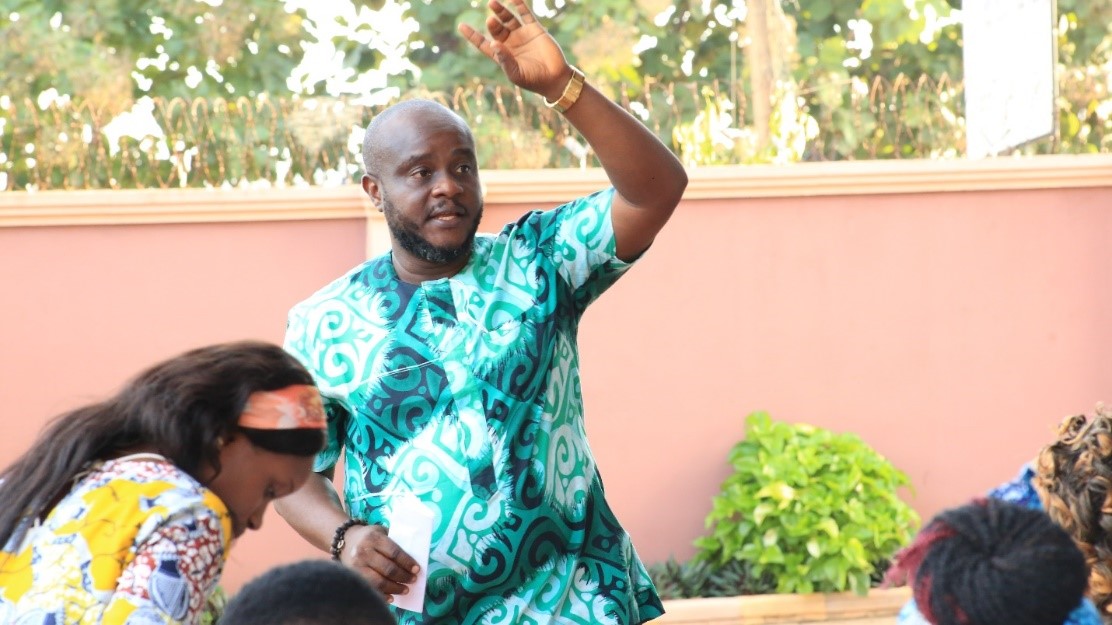
Mr. Charles Osa Emokpae teaching screen acting techniques.
According to Charles Emokpae, most schools of thought believe that the advent of acting came when the ancient Greek actor named Thespis of Icaria broke the convention of the dithyrambic chorus and became a separate character. Thus, acting conventions are based on various techniques of character mimesis-imitation. The stage performance saw the use of performance as a means of addressing political and social problems in the ancient Greeks, as it was mandatory for all citizens of society to see the performances. Soon, theatrical performance became a source of entertainment, as many continents began to champion new styles and movements in acting. The early 20th century saw the creation of many movements in the form of drama schools. Konstantin Stanislavski created an actor training system that has formed the basis for most professional actor training today. The acting system as it is popularly known has become popular in the United States as the Lee Strasberg, Stella Adler, and Sanford Meisner acting method. Charles touched on the idea of fantasy and realism in acting, noting that an actor is expected to put aside his immediate characteristics and portray them, which are found in the new character he is going to play. He gave the participants dramatic scenarios like drinking from an imaginary cup while these members tried their best to do so.
More information about this source text For more information about the translation, the source text is required
Post comments
Side panels
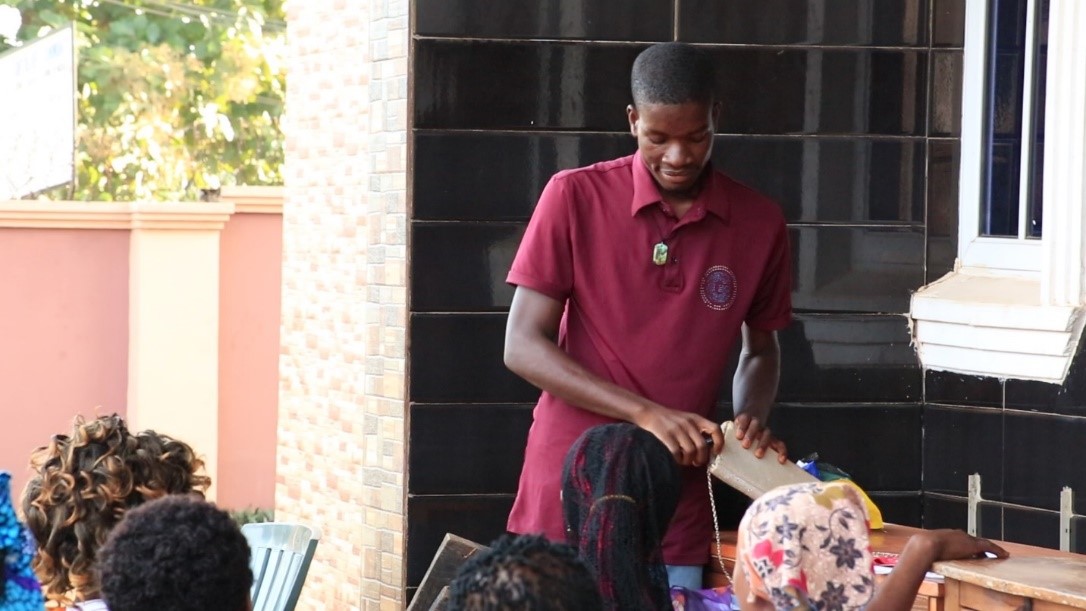
A participant representing a scenario of drinking from an imaginary jug
The first day was captivating as the members were interested in learning about various on-screen acting techniques. Most of the members complained about the scenic transportation issue and being nervous while performing. The expert opined that developing a high level of self-esteem and courage to handle tasks will lead aspiring actors to conquer the stage and become better actors.
Day 2:
Production economics and narrative structure of Nollywood: critical discourse
The second day's workshop focused on the Ethics of Production in Nollywood presented by Dr. Charles Okwuowulu (DGN). His topic, The Economics of Production and Nollywood Narrative Structure: A Critical Discourse, explored the cinematic structure found within the industry and various organizations and bodies that regulate it. According to him, the Nollywood guilds are various bodies modeled so that practitioners have a fluid practice. He mentioned various guilds in the industry such as the Actors Guild of Nigeria (AGN), the Screenwriters Guild of Nigeria (SWGN), and the Directors Guild of Nigeria (DGN). He noted that the Motion Picture Practitioners Council of Nigeria (MOPPICON) is a regulatory arm proposed by the Nigerian government that is expected to regulate the activities of these guilds.
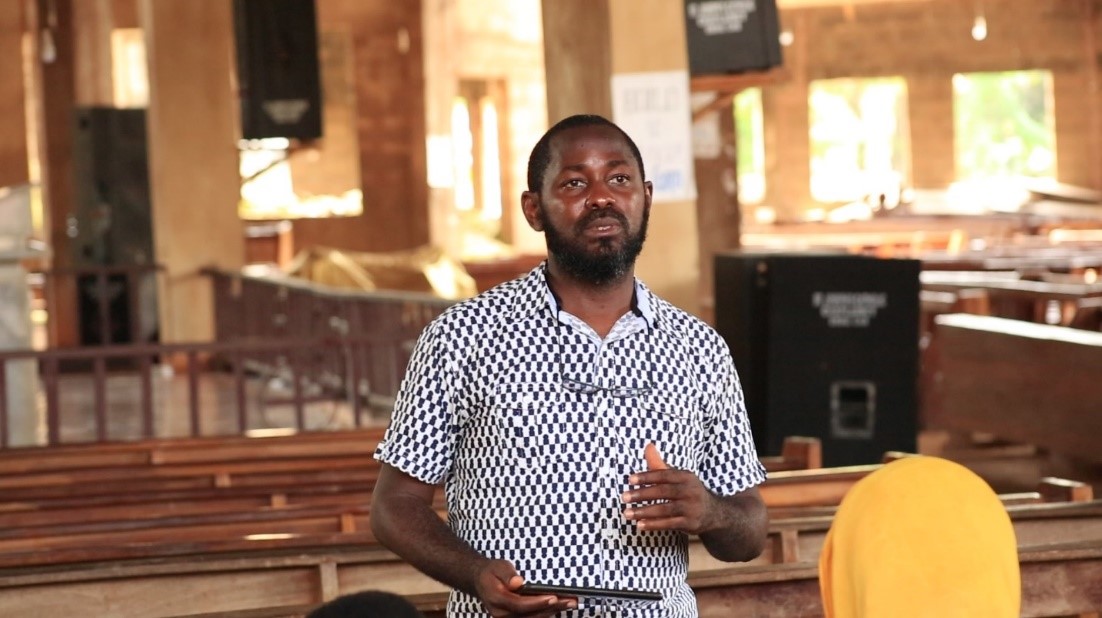
Dr. Charles Okwuowulu lecturing at the Nollywood Workshop on Production Economics and Narrative Structure: A Critical Discourse
He went further by dissecting the production structure into three; Pre-production, production, and post-production, explaining that pre-production looks at the preparatory stages ranging from the conception of a script, obtaining the budget, auditioning for the cast and crew members. The production watches the production shoot as the story is (re) created in front of a camera. Post-production is the final stage, as the captured clips are organized into one understandable final piece - a movie. The roles of each crew personnel are equally highlighted.
Participants Production of film dramas
The participants were grouped into 4 different groups and tasked with producing film skits centered on Catholic Reflections during the Advent period. These groups must go through various film production processes to update this task.
Group 1 during the production of short films
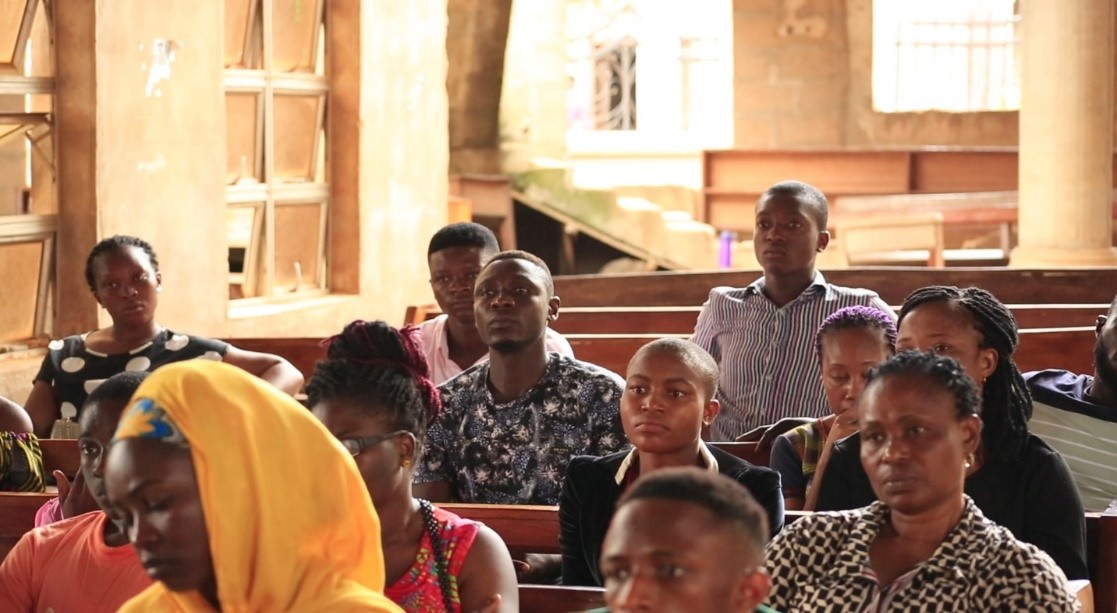
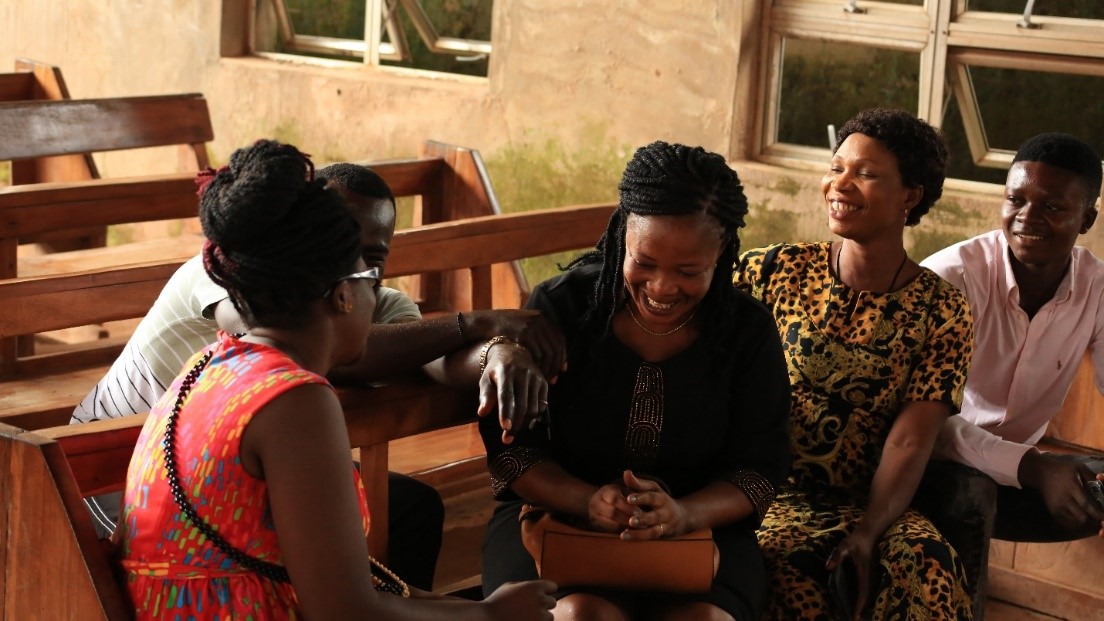
Group 2 during the production of short films
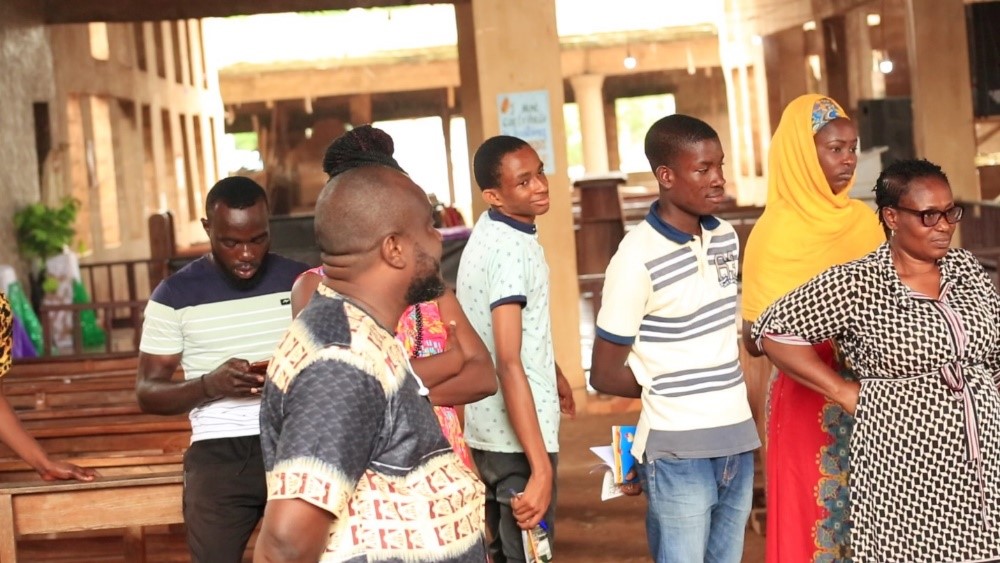
Group 3 during the production of short films
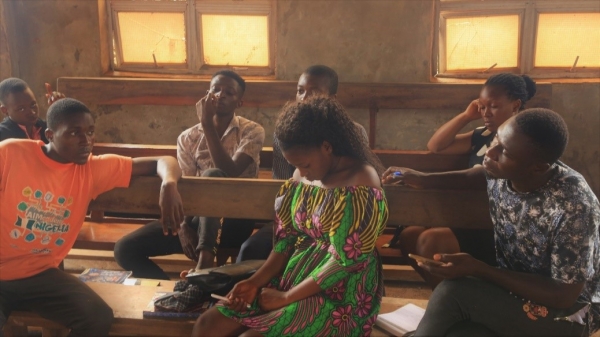
Group 4 during the production of short films
At the end of the 2-day workshop, CAEAN members expressed their gratitude for the enormous effort of the organizers and for the opportunity and avenue to explore the talents of their youth.
“CAEAN Forever! Entertainment for Christ!






